
Sassandra: The Hidden Gem of Côte d'Ivoire
Nestled along the picturesque coastline of Côte d'Ivoire, Sassandra is a tranquil retreat that beckons tourists with its unspoiled beauty and rich cultural heritage. This charming town, once a bustling port during the colonial era, now offers a serene escape from the hustle and bustle of modern life. The town's laid-back vibe and breathtaking landscapes make it a perfect destination for those looking to unwind and reconnect with nature. Stroll along the pristine beaches, where soft sands and gentle waves create a perfect backdrop for relaxation. The coastline is dotted with quaint fishing villages, offering visitors a glimpse into the traditional way of life. For the adventurous at heart, Sassandra's lush forests and rolling hills provide ample opportunities for hiking and exploration. Wildlife enthusiasts will be delighted by the diverse flora and fauna, including a variety of bird species and the chance to spot playful monkeys in their natural habitat. The history of Sassandra is equally captivating. Visit the historic Sassandra Lighthouse, which stands as a testament to the town's maritime heritage. The remnants of colonial architecture scattered throughout the town offer a window into its past. Engage with the warm and welcoming locals, who are always eager to share their stories and traditions. Don't miss the vibrant local markets, where you can find unique crafts and sample delicious Ivorian cuisine. From fresh seafood to exotic fruits, the flavors of Sassandra are sure to tantalize your taste buds.
Local tips in Sassandra
- Visit during the dry season (November to April) for the best weather and clearer skies.
- Bring cash, as credit card facilities are limited in smaller towns like Sassandra.
- Learn a few basic French phrases, as it is the primary language spoken in the region.
- Respect the local customs and traditions, especially when visiting villages and local markets.
- Try the local seafood dishes at beachfront restaurants for a true taste of Sassandra's culinary delights.
Sassandra: The Hidden Gem of Côte d'Ivoire
Nestled along the picturesque coastline of Côte d'Ivoire, Sassandra is a tranquil retreat that beckons tourists with its unspoiled beauty and rich cultural heritage. This charming town, once a bustling port during the colonial era, now offers a serene escape from the hustle and bustle of modern life. The town's laid-back vibe and breathtaking landscapes make it a perfect destination for those looking to unwind and reconnect with nature. Stroll along the pristine beaches, where soft sands and gentle waves create a perfect backdrop for relaxation. The coastline is dotted with quaint fishing villages, offering visitors a glimpse into the traditional way of life. For the adventurous at heart, Sassandra's lush forests and rolling hills provide ample opportunities for hiking and exploration. Wildlife enthusiasts will be delighted by the diverse flora and fauna, including a variety of bird species and the chance to spot playful monkeys in their natural habitat. The history of Sassandra is equally captivating. Visit the historic Sassandra Lighthouse, which stands as a testament to the town's maritime heritage. The remnants of colonial architecture scattered throughout the town offer a window into its past. Engage with the warm and welcoming locals, who are always eager to share their stories and traditions. Don't miss the vibrant local markets, where you can find unique crafts and sample delicious Ivorian cuisine. From fresh seafood to exotic fruits, the flavors of Sassandra are sure to tantalize your taste buds.
When is the best time to go to Sassandra?
Unmissable attractions to see
Man's Waterfalls
Discover the enchanting beauty of Man's Waterfalls in Côte d'Ivoire, a serene natural escape surrounded by lush landscapes and rich cultural traditions.
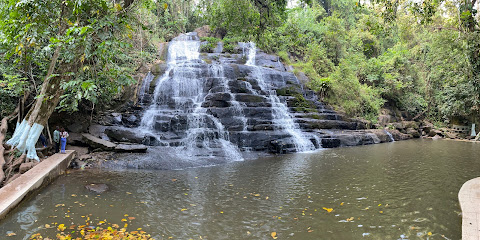
Taï National Park
Explore Taï National Park, a UNESCO World Heritage Site rich in biodiversity and adventure in the heart of Côte d'Ivoire's lush rainforests.
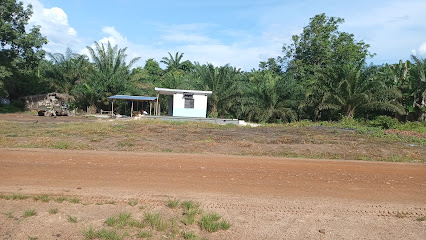
Chutes de la Nawa
Experience the breathtaking beauty of Chutes de la Nawa, a stunning waterfall in Côte d'Ivoire, perfect for nature lovers and adventurers seeking tranquility.
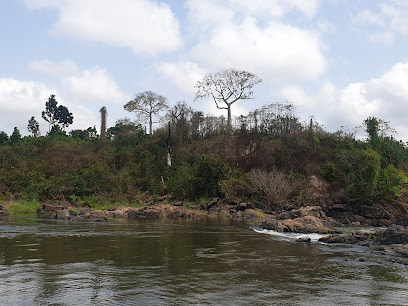
Plage de San pedro
Discover Plage de San Pedro: Golden sands, clear waters, and vibrant Ivorian culture await on this stunning coastal paradise.
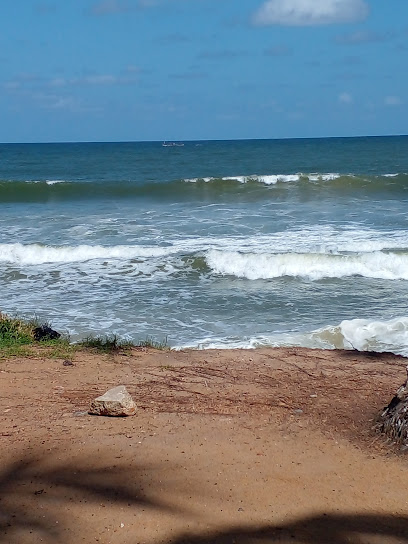
Pont De Weygand ( Gaoulou /sassandra )
Discover the stunning beauty of the Pont De Weygand in Sassandra, where serene waters meet a breathtaking landscape in Côte d'Ivoire.
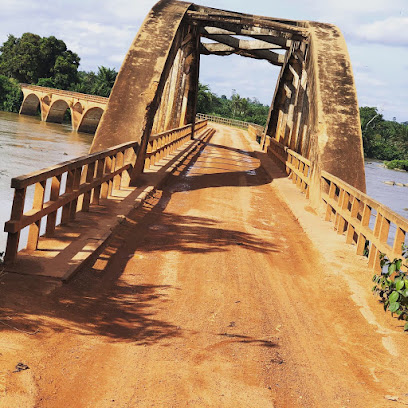
Le PHARE DE SASSANDRA
Uncover the maritime wonders of Sassandra at Le Phare de Sassandra, where history and coastal beauty converge.
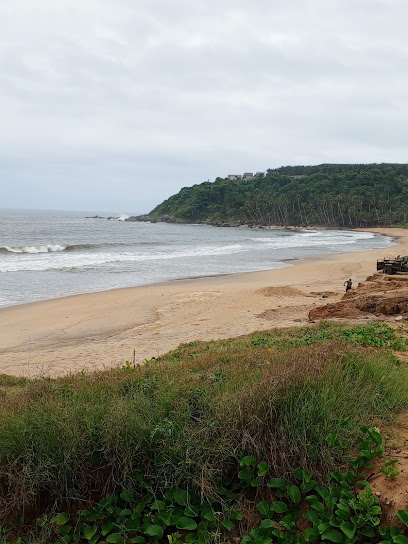
Old Sassandra wharf
Experience the historic allure and stunning views of Old Sassandra Wharf, a cultural gem on the Ivory Coast's Atlantic coast.
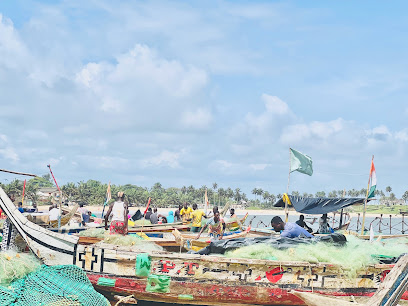
Dabeda
Explore the stunning beaches and vibrant local culture at Dabeda, a must-visit tourist attraction in Sassandra, Côte d'Ivoire.

Essential places to dine
Jardin d'Eden
Experience exquisite Ivorian cuisine amidst lush surroundings at Jardin d'Eden in San-Pédro.
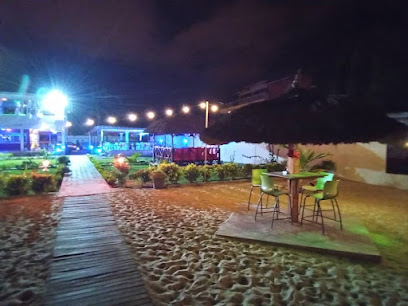
Le bouquet garni
Savor exquisite Ivorian and international dishes at Le Bouquet Garni in San-Pédro, where culinary tradition meets vibrant atmosphere.
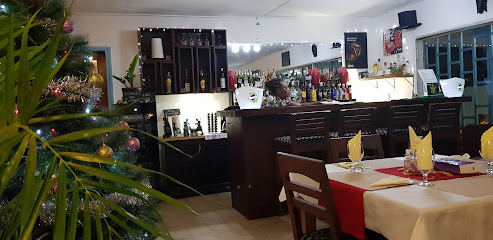
Restaurant Kossipo
Discover Restaurant Kossipo in San-Pédro: A Chicken Lover's Paradise Offering Authentic West African Cuisine.
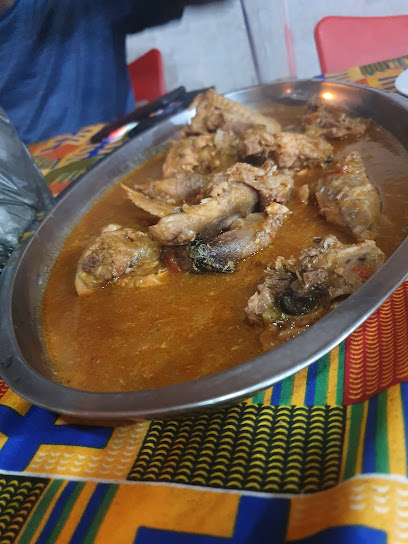
Le Bunker
Experience authentic Ivorian cuisine at Le Bunker, a cozy restaurant in San-Pédro offering delightful flavors and warm hospitality.
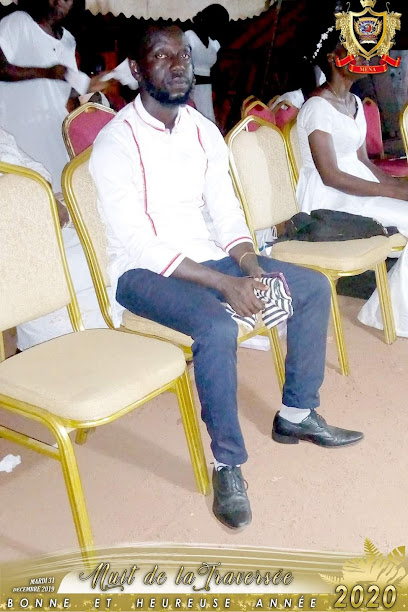
RESTAURANT LA PAILLOTE GOURMANDE
Experience the vibrant flavors of Côte d'Ivoire at Restaurant La Paillote Gourmande - where culinary excellence meets warm hospitality.
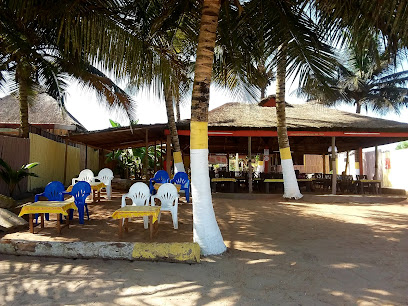
Restaurant Horizon
Discover authentic Ivorian flavors at Restaurant Horizon in San-Pédro - where delightful dishes meet vibrant coastal charm.
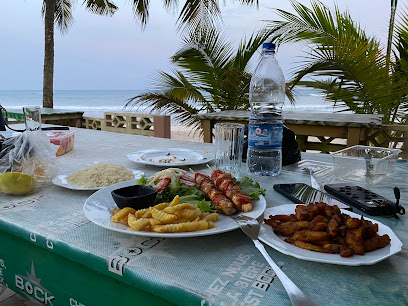
Maquis-Restaurant Le Privilège
Discover authentic Ivorian flavors at Maquis-Restaurant Le Privilège in Sassandra - where every meal tells a story.
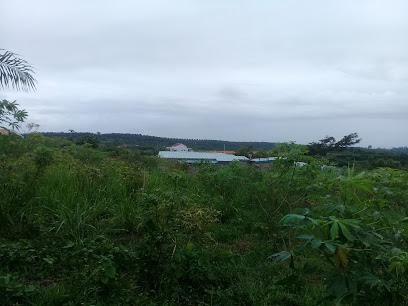
Douces Saveurs Beach
Experience exquisite dining with breathtaking ocean views at Douces Saveurs Beach in San-Pédro.
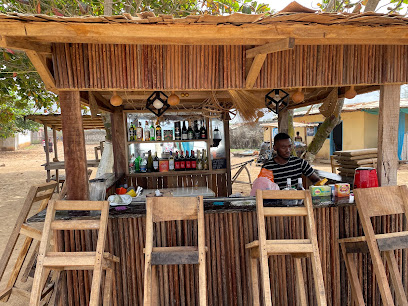
Ocean Food
Experience authentic Ivorian cuisine at Ocean Food in San-Pédro – where fresh seafood meets warm hospitality.
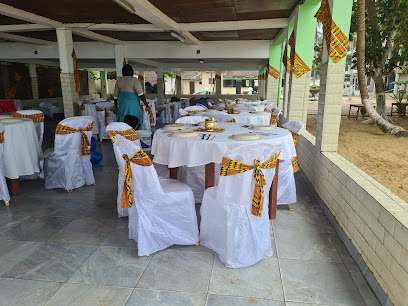
Celina Maquis
Discover Celina Maquis in Sassandra for an unforgettable dining experience featuring fresh seafood and vibrant local flavors by the ocean.

Océane Zoé
Discover Océane Zoé: A culinary haven in San offering authentic Ivorian dishes and international cuisine amidst vibrant ambiance.

Le Bistro Malin (Chez César)
Discover authentic African cuisine at Le Bistro Malin in San-Pedro - where every dish tells a story.
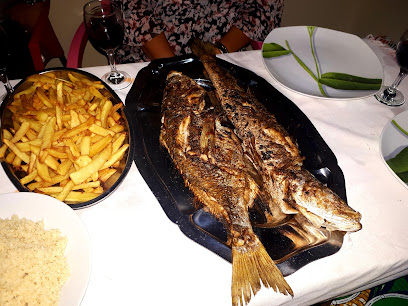
RESTAURANT ABOUSSOUAN
Experience the rich flavors of Côte d'Ivoire at Restaurant Aboussouan in San-Pédro - a culinary gem offering authentic local dishes.
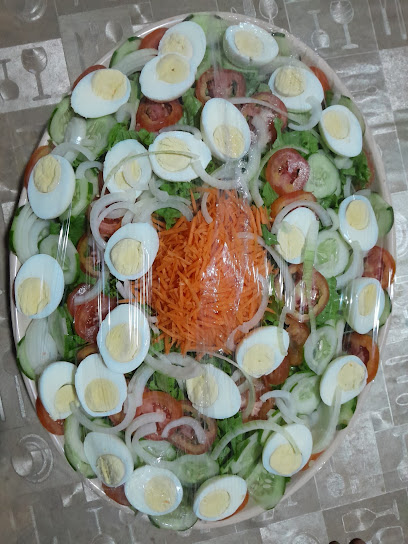
Resto bar le palmier
Experience authentic Ivorian flavors at Resto Bar Le Palmier in Sassandra - where great food meets lively culture.
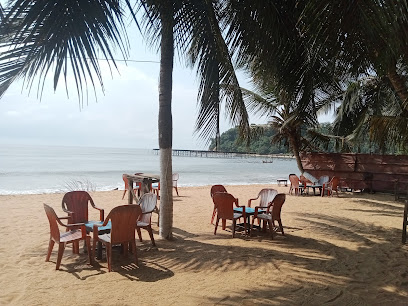
Lateko plage
Discover Lateko Plage: Sassandra's premier restaurant offering authentic Ivorian cuisine with stunning ocean views for an unforgettable dining experience.
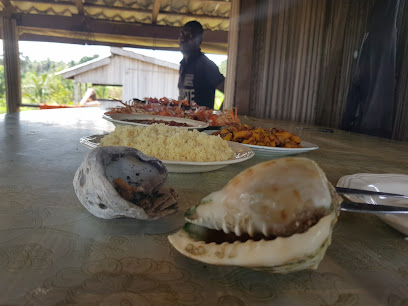
Markets, malls and hidden boutiques
Hotel le Pollet
Experience the charm of Bas-Sassandra at Hotel le Pollet, where comfort meets coastal beauty in a cozy hotel retreat.
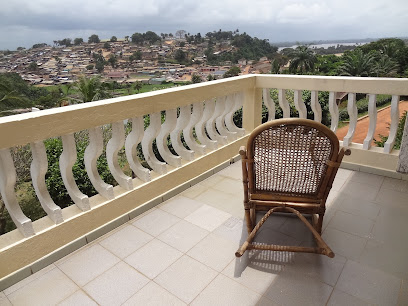
Supermarché King Cash Sassandra
Discover the flavors of Sassandra at Supermarché King Cash, your one-stop destination for fresh produce and local delicacies.
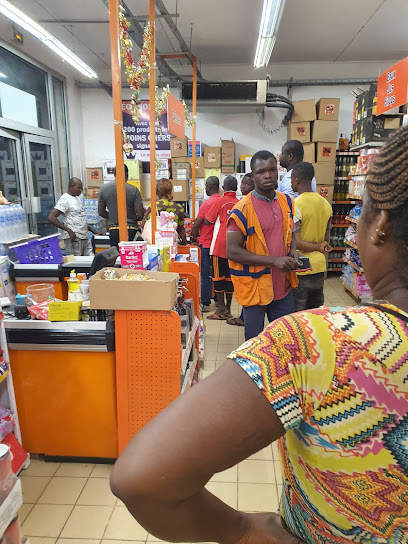
SIPEF-CI BOLO V1
Experience the vibrant culinary culture of Côte d'Ivoire at SIPEF-CI BOLO V1, your go-to grocery store for local flavors and fresh produce.
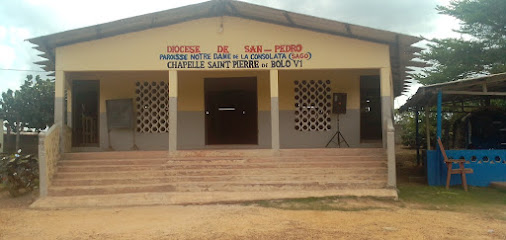
En face de la station shell
Discover the heart of Sassandra through shopping at En Face de la Station Shell, where local culture meets modern retail experiences.
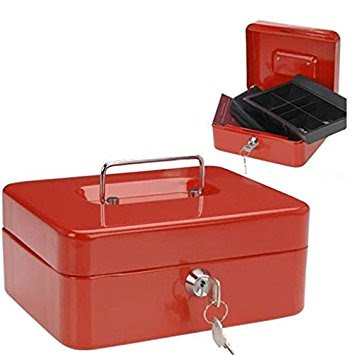
Apatam de BOLO
Discover a vibrant shopping experience at Apatam de BOLO, where local culture meets modern amenities in a bustling mall environment.
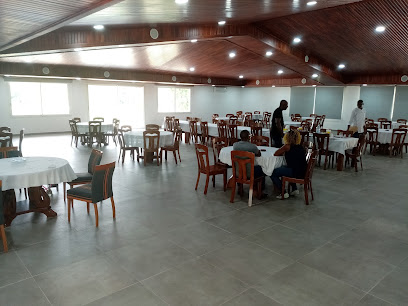
JAMES COMMUNICATION
Discover the latest electronics and gadgets at James Communication in Sassandra, your trusted source for tech needs in the heart of the city.
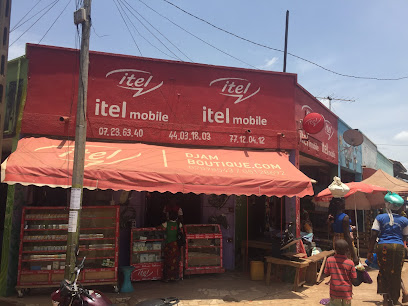
Pharmacie Sarah
Discover essential health services at Pharmacie Sarah, where local care meets traveler convenience in the heart of Sassandra.
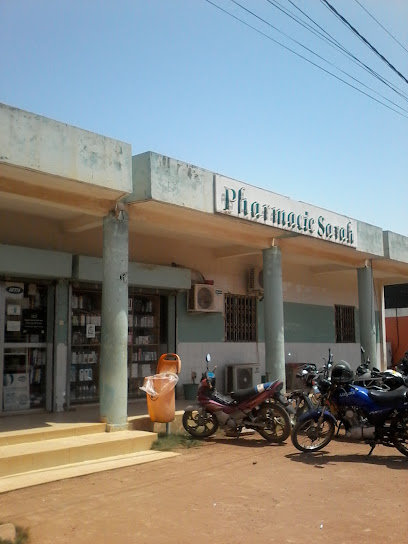
L'aigle Mêla Mericain
Experience the vibrant shopping scene at L'aigle Mêla Mericain in Sassandra, where local crafts and delicious cuisine await.
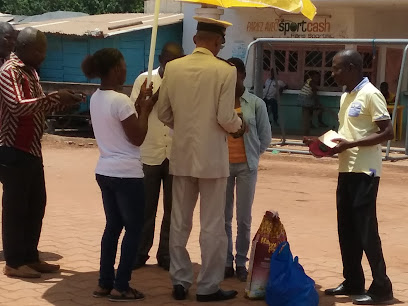
GLAM'S SHOP
Explore the vibrant fashion scene at Glam's Shop in San-Pedro, where style meets local charm in a unique shopping experience.
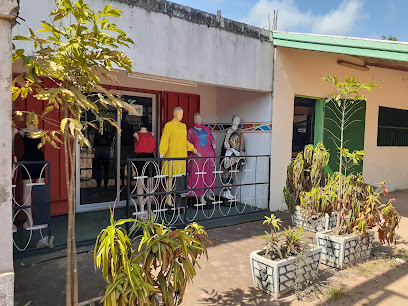
Kam’c Shop
Experience authentic Ivorian culture and craftsmanship at Kam’c Shop in Tiagbo—your destination for unique souvenirs and local treasures.
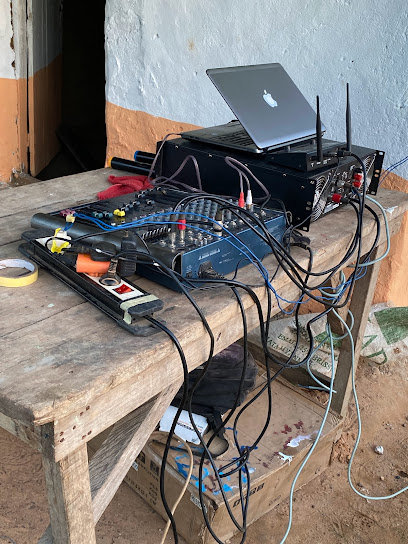
Benito cosmétique
Discover beauty and culture at Benito Cosmétique, a premier shopping destination in Sassandra offering a variety of beauty products.

SOCABD
Discover unique local crafts and vibrant goods at SOCABD Store in Ivory Coast, a must-visit for an authentic shopping experience.

SOUM-BOUTIQUE
Discover cutting-edge software solutions at SOUM-BOUTIQUE in Sassandra, where technology meets innovation in a welcoming atmosphere.
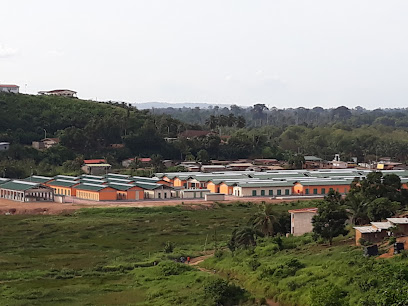
REPAR' CENTER / ORACLES CENTER
Discover reliable mobile repair services at Repar' Center in Sassandra, the perfect stop for tourists needing quick tech support.
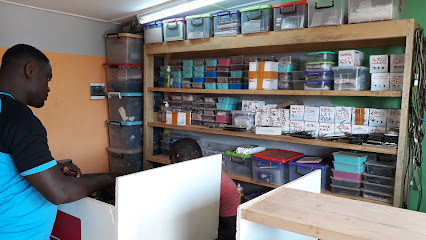
SOCCOCE SASSANDRA
Explore the vibrant flavors of Sassandra at SOCCOCE, your go-to supermarket for local delicacies and fresh produce in Ivory Coast.
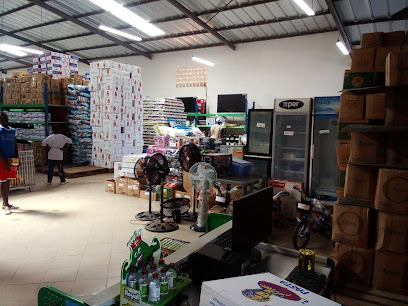
Essential bars & hidden hideouts
Hotel le Pollet
Comfort and accessibility blend seamlessly at Hotel le Pollet in Bas-Sassandra, where local culture meets modern hospitality.
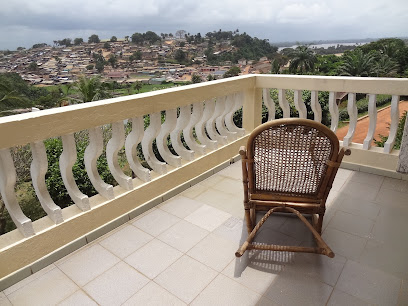
la terrasse
Experience the charm of Sassandra at La Terrasse, where comfort meets breathtaking coastal views in an inviting atmosphere.
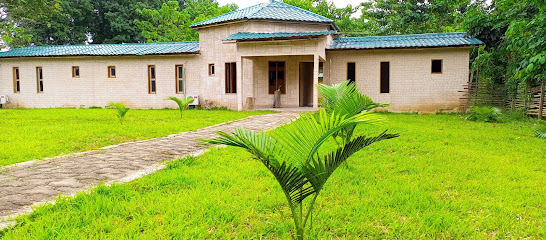
Maquis-Restaurant Le Privilège
Discover the authentic tastes of Côte d'Ivoire at Maquis-Restaurant Le Privilège in Sassandra, where local flavors and a warm atmosphere await.
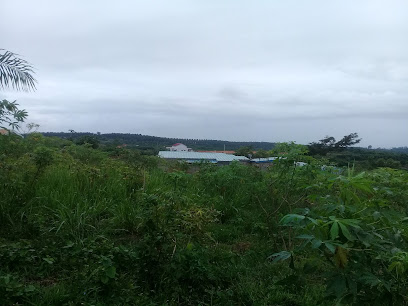
Celina Maquis
Discover the flavors of Côte d'Ivoire at Celina Maquis, where fresh seafood and stunning coastal views create an unforgettable dining experience.

Resto bar le palmier
Experience authentic Ivorian cuisine at Resto Bar Le Palmier, a vibrant restaurant in Sassandra known for its local flavors and welcoming atmosphere.
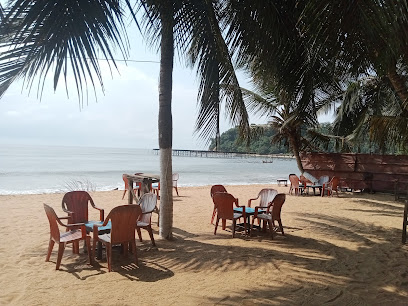
Lateko plage
Discover the flavors of the sea at Lateko Plage, a beachfront gem in Sassandra where delicious cuisine meets stunning ocean views.
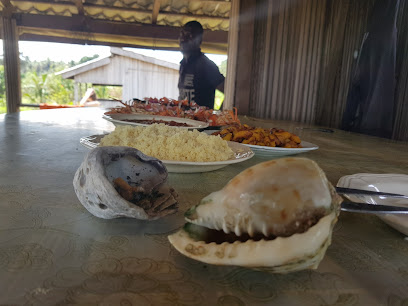
THE CODE'S VIP RESTAURANT
Experience the best of local and international cuisine at The Code's VIP Restaurant in Sassandra, a culinary jewel of the Ivory Coast.
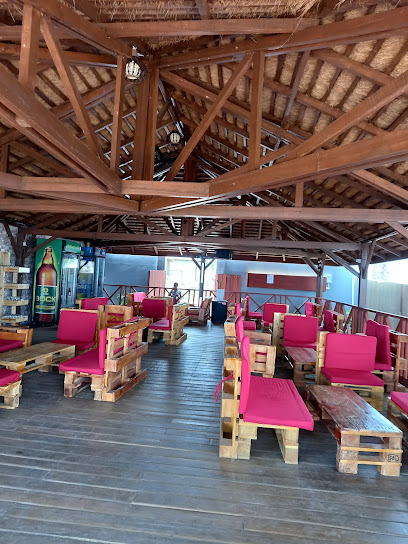
Sweet Life (Restau Bar Évent)
Discover the vibrant ambiance and local flavors at Sweet Life in Sassandra, a premier bar for tourists seeking authentic experiences.

Bar Le Lion
Discover the vibrant Bar Le Lion in Sassandra, where delicious drinks and a lively atmosphere await every visitor.
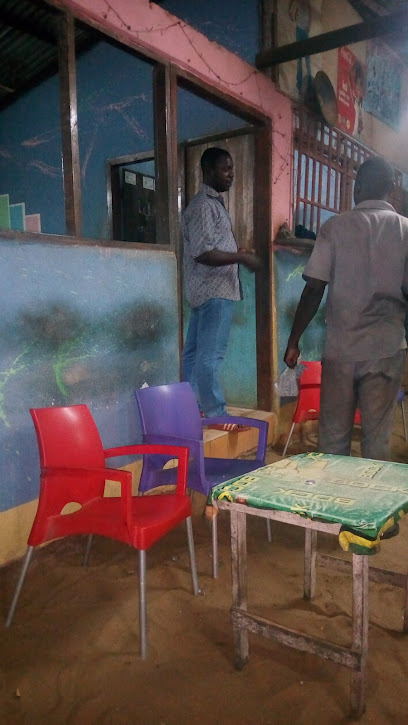
CALAO 2
Calao 2 in Sassandra offers a delightful family dining experience with a diverse menu and a welcoming atmosphere perfect for all ages.
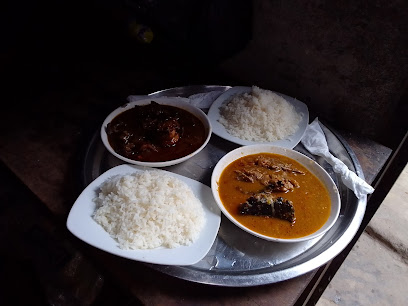
Restaurant pôle nord sassandra
Discover the authentic tastes of Côte d'Ivoire at Restaurant Pôle Nord Sassandra, where local flavors and hospitality come together.
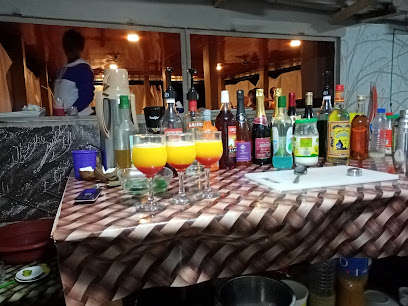
O' Prestige Food Sassandra
Experience the best of Ivorian cuisine at O' Prestige Food Sassandra, where every meal is a celebration of local flavors in a charming atmosphere.
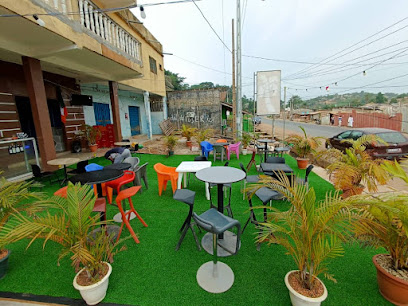
Point Final
Experience the vibrant atmosphere of Point Final, a unique beer hall offering local brews and authentic flavors in a cultural hub.
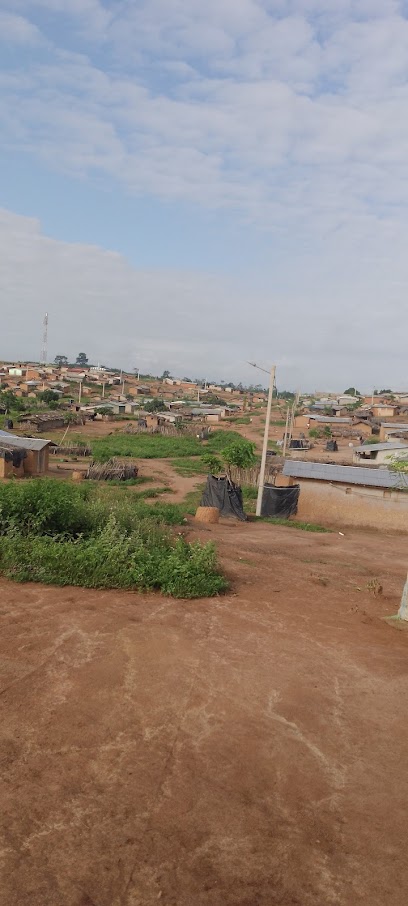
Maquille le Far ouest(western)
Discover the vibrant atmosphere of Maquille le Far ouest in Misseh, a bar blending local culture with refreshing drinks for every traveler.
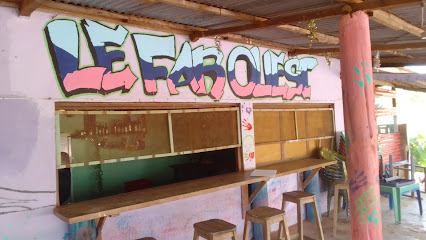
Local Phrases
-
- HelloAlo
[ah-loh] - GoodbyeAurevoir
[oh-reh-vwar] - YesOui
[wee] - NoNon
[nohn] - Please/You're welcomeS'il vous plaît
[seel voo pleh] - Thank youMerci
[mehr-see] - Excuse me/SorryPardon
[pahr-dohn] - How are you?Comment ça va?
[koh-mohn sah vah] - Fine. And you?Bien. Et toi?
[byehn. ay twah] - Do you speak English?Parlez-vous anglais?
[pahr-leh voo ahn-glay] - I don't understandJe ne comprends pas
[zhuh nuh kohm-prahng pah]
- HelloAlo
-
- I'd like to see the menu, pleaseJe voudrais voir le menu, s'il vous plaît
[zhuh voo-dreh vwahr luh meh-noo, seel voo pleh] - I don't eat meatJe ne mange pas de viande
[zhuh nuh mahnj pah duh vyand] - Cheers!Santé!
[sahn-tay] - I would like to pay, pleaseJe voudrais payer, s'il vous plaît
[zhuh voo-dreh pay-ay, seel voo pleh]
- I'd like to see the menu, pleaseJe voudrais voir le menu, s'il vous plaît
-
- Help!Au secours!
[oh suh-koor] - Go away!Allez-vous-en!
[ah-lay voo zahn] - Call the Police!Appelez la police!
[ah-peh-lay lah poh-lees] - Call a doctor!Appelez un médecin!
[ah-peh-lay uh may-deh-sahn] - I'm lostJe suis perdu
[zhuh swee pehr-doo] - I'm illJe suis malade
[zhuh swee mah-lahd]
- Help!Au secours!
-
- I'd like to buy...Je voudrais acheter...
[zhuh voo-dreh ah-shet-ay] - I'm just lookingJe regarde juste
[zhuh ruh-gahrd jehst] - How much is it?Combien ça coûte?
[kohm-byen sah koot] - That's too expensiveC'est trop cher
[say troh shehr] - Can you lower the price?Pouvez-vous baisser le prix?
[poo-vay voo beh-say luh pree]
- I'd like to buy...Je voudrais acheter...
-
- What time is it?Quelle heure est-il?
[kehl uhr eh-teel] - It's one o'clockIl est une heure
[eel eh oon uhr] - Half past (10)Dix heures et demi
[dees uhr ay duh-mee] - MorningMatin
[mah-tuhn] - AfternoonAprès-midi
[ah-preh mee-dee] - EveningSoir
[swahr] - YesterdayHier
[yehr] - TodayAujourd'hui
[oh-zhoor-dwee] - TomorrowDemain
[duh-mahn] - 1Un
[uhn] - 2Deux
[duh] - 3Trois
[twah] - 4Quatre
[kah-truh] - 5Cinq
[sank] - 6Six
[sees] - 7Sept
[seht] - 8Huit
[weet] - 9Neuf
[nurf] - 10Dix
[dees]
- What time is it?Quelle heure est-il?
-
- Where's a/the...?Où est un/le...?
[oo eh oon/luh] - What's the address?Quelle est l'adresse?
[kehl eh lay-drehs] - Can you show me (on the map)?Pouvez-vous me montrer (sur la carte)?
[poo-vay voo muh mohn-tray (soor lah kart)] - When's the next (bus)?Quand est le prochain (bus)?
[kahnd eh luh proh-shang (boos)] - A ticket (to ....)Un billet (pour ....)
[uhn bee-yay (poor)]
- Where's a/the...?Où est un/le...?
History of Sassandra
-
Before the arrival of European colonizers, the region that is now Sassandra was inhabited by various indigenous groups. The area was rich in natural resources and the local communities practiced fishing, agriculture, and trade. The region's rivers and coastline provided ample opportunities for commerce and interaction with neighboring tribes.
-
In the late 15th century, Portuguese explorers were among the first Europeans to visit the coast of what is now Côte d'Ivoire. They established trade routes and trading posts along the coastline, including areas near Sassandra. The Portuguese were primarily interested in trading for gold, ivory, and other valuable resources.
-
During the late 19th century, Sassandra, along with the rest of Côte d'Ivoire, came under French control. The French established Sassandra as a colonial administrative and trading center. The town's port became an important hub for exporting timber, rubber, and other commodities. This period also saw the construction of colonial-era buildings, some of which still stand today.
-
During World War II, Côte d'Ivoire was under the control of the Vichy regime, which collaborated with Nazi Germany. Sassandra, like other parts of the region, experienced the impact of the war, including disruptions to trade and the imposition of Vichy policies. The local population endured hardships as resources were diverted to support the war effort.
-
Côte d'Ivoire gained independence from France in 1960, and Sassandra began to develop as part of the newly independent nation. Investment in infrastructure, including roads and the port, helped to boost the local economy. Sassandra became known for its fishing industry and scenic beaches, attracting both local and international visitors.
-
Sassandra is a melting pot of cultures, with influences from various ethnic groups such as the Krou, Ehotilé, and others. Traditional music, dance, and festivals are integral to the town's cultural identity. The annual 'Fête de la Mer' (Festival of the Sea) is a significant event that celebrates the town's maritime heritage and attracts visitors from across the region.
-
In recent years, Sassandra has seen growth in tourism, thanks to its beautiful beaches, historical sites, and vibrant culture. Efforts have been made to preserve the town's historical buildings and promote eco-tourism. The local government and community organizations are working together to ensure sustainable development while maintaining the town's unique character.
Sassandra Essentials
-
Sassandra is accessible via Félix-Houphouët-Boigny International Airport in Abidjan, which is approximately 200 kilometers away. From Abidjan, you can take a bus or hire a private taxi to Sassandra. The journey typically takes around 4 to 5 hours by road. Alternatively, you can rent a car for more flexibility. If you prefer a more scenic route, consider taking a boat ride along the coast from Abidjan to Sassandra.
-
Within Sassandra, you can navigate the town using local taxis, which are relatively inexpensive. For longer distances, minibuses (gbakas) operate routes to nearby towns and cities. Walking is also a viable option for exploring the town center and coastal areas. Renting a bicycle or a scooter can be a fun way to get around while enjoying the scenery.
-
The official currency in Côte d'Ivoire is the West African CFA franc (XOF). Credit cards are accepted in some hotels and larger restaurants, but it is advisable to carry cash, especially when shopping in local markets or dining at smaller establishments. ATMs are available in Sassandra, but it is recommended to withdraw sufficient cash in Abidjan before traveling.
-
Sassandra is generally a safe destination for tourists. However, it is advisable to take standard precautions. Avoid walking alone at night in unfamiliar areas and keep an eye on your belongings in crowded places. The neighborhood of Grand-Bassam, while historically rich, has reported higher crime rates targeting tourists, so it is best to avoid it after dark.
-
In case of emergency, dial 170 for police assistance and 185 for medical emergencies. The local police station and medical facilities are available in Sassandra. It is recommended to have travel insurance that covers medical emergencies. Pharmacies in the town can provide over-the-counter medications for minor health issues.
-
Fashion: Do dress modestly. Avoid wearing very revealing clothing, especially in rural areas. Religion: Do respect local customs and traditions. Show respect when visiting religious sites. Public Transport: Do be courteous and give up your seat for elderly passengers. Don’t eat or drink on public transport. Greetings: Do greet people with a handshake. A smile and a polite greeting in French, such as 'Bonjour,' is appreciated. Eating & Drinking: Do try local dishes and accept food offerings graciously. Don’t waste food, as it is considered impolite.
-
To experience Sassandra like a local, visit the local markets where you can buy fresh seafood and traditional Ivorian goods. Engage with locals, who are often friendly and willing to share stories about the town's history and culture. Don’t miss visiting the German Wharf and the Sassandra Lighthouse for stunning views. For a unique experience, take a boat trip along the Sassandra River to explore the lush surrounding landscapes.
Nearby Cities to Sassandra
-
Things To Do in San-Pédro
-
Things To Do in Daloa
-
Things To Do in Yamoussoukro
-
Things To Do in Abidjan
-
Things To Do in Sanniquellie
-
Things To Do in Ganta
-
Things To Do in Gbarnga
-
Things To Do in Buchanan
-
Things To Do in Takoradi
-
Things To Do in Sekondi-Takoradi
-
Things To Do in Sunyani
-
Things To Do in Kakata
-
Things To Do in Kumasi
-
Things To Do in Cape Coast
-
Things To Do in Monrovia








